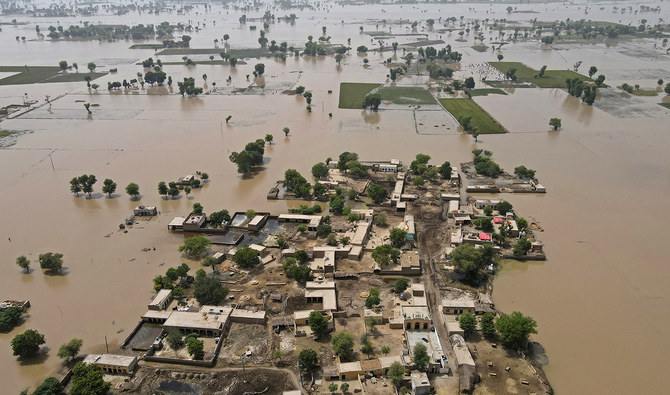- Web Desk
- Feb 24, 2026
Pakistan all set to present climate case at COP28
-

- Web Desk
- Nov 26, 2023

ISLAMABAD: As the specter of escalating climate challenges looms large, Pakistan, a nation contributing less than 1% to global greenhouse gas emissions, finds itself engaged in an uphill battle against climate adversities. With the 28th Conference of the Parties (COP28) on the horizon, Pakistan’s narrative unfolds as a tale of resilience and unwavering determination.
The World Bank highlights the glaring vulnerability of Pakistan to climate change, citing a surge in exposure to extreme weather events, exemplified by the recent devastating floods in Balochistan. These catastrophes not only wrought havoc on communities but also underscored the pressing need for climate-resilient strategies.
Despite its meager contribution to global emissions, Pakistan stands at the forefront of the harsh realities of a warming planet, a fact that has seized the spotlight at international forums like COP28. The nation’s efforts and challenges will undergo thorough global scrutiny.
At the core of Pakistan’s response is the National Adaptation Plan (NAP) 2023, a comprehensive framework orchestrated to foster resilience and sustainability. The Ministry of Planning, Development, and Special Initiatives aligns Pakistan’s future with the blueprint for a sustainable future, as presented by the Ministry of Climate Change and Environmental Coordination.
Structured around six key pillars, NAP 2023 addresses critical areas of climate adaptation and resilience, encompassing water resources management, agriculture and food security, forest and biodiversity, disaster risk reduction and preparedness, infrastructure and built environment, and ublic health.
These pillars collectively aim to establish a comprehensive and integrated approach, making Pakistan more resilient and adaptive to the adverse effects of climate change.
Noteworthy projects under the NAP 2023 underscore Pakistan’s proactive stance towards climate action. The Balochistan Integrated Flood Recovery and Resilience Project (IFRAP), backed by a $213 million investment from the World Bank, seeks to rebuild flood-affected communities, emphasizing long-term resilience.
In Sindh, the Coastal Resilience project confronts challenges posed by rising sea levels and coastal erosion. This initiative is pivotal for safeguarding the livelihoods of communities’ dependent on fragile coastal ecosystems, marking a strategic shift toward managing the intricate interplay between climate change and socio-economic development.
Climate change’s unyielding impact: report warns of dire consequences for global ecosystems
As the global community converges for COP28, Pakistan’s story resonates as one of resolve and action in the face of overwhelming odds. The country’s efforts, guided by the NAP 2023, exemplify a commitment to sustainable development and climate action. While challenges persist on the road ahead, Pakistan’s journey offers valuable lessons in resilience and adaptability.
The fight against climate change is a global endeavor, demanding concerted efforts from all nations. Wealthier nations, contributing significantly to global emissions, play a crucial role in supporting vulnerable countries like Pakistan. The disparity in emissions and impact underscores the need for equity and justice in global climate policies.
While the world looks to COP28 for leadership and commitment, Pakistan’s story serves as a reminder that every action counts. From large-scale projects to community-level initiatives, the journey toward a sustainable and resilient future is a collective effort. In this endeavor, Pakistan stands as a testament to what can be achieved with vision, commitment, and collective action in the face of climate diversity.




